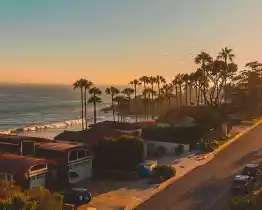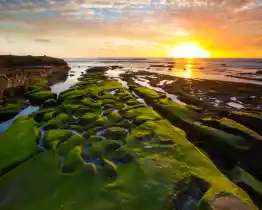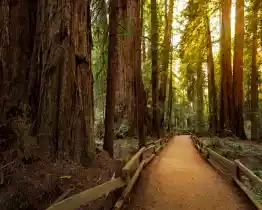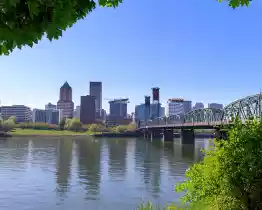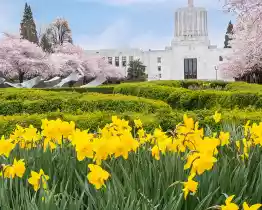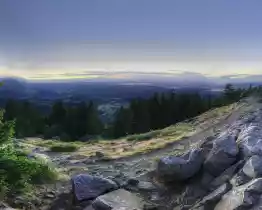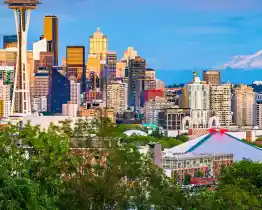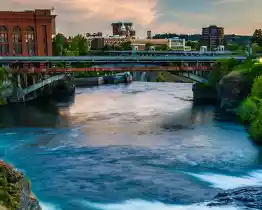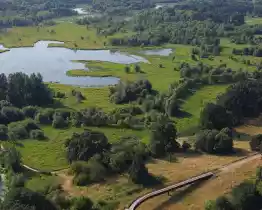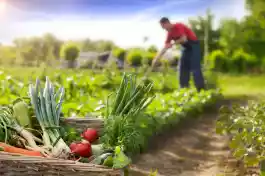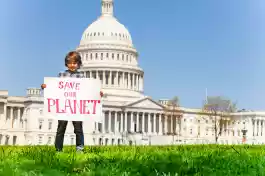Modal Header
- econews
- Washington
Washington: How to climb against climate change
Washington residents, like people across the country, are seeing impacts from global warming. With the Pacific Northwest having warmed at least 1.3°F since 1895, climate change is already being felt in the Evergreen State.
Extreme weather harms the agricultural industry along with shellfish hatcheries which are failing because of an acidifying ocean, record-breaking wildfires are destroying forests and communities, and declining snowpack and earlier snowmelt in the mountains are jeopardizing summer water supplies.
Sea level rise. Sea levels have risen over eight inches since 1880, three of those inches gained in the last 25 years. This leads to flooding and habitat changes. Inland saltwater can contaminate wetlands and agricultural soils.
Water Supply. Rising temperatures mean precipitation falls as rain rather than snow, reducing snow pack levels, needed for water supply in many parts of Washington.
Wildfires. These weather changes cause the solid to be drier, increasing the chance of drought, turning the forests into tinderboxes.
Ocean acidification. Carbon pollution from humans absorbed by seawater, causing the ocean to become acidic. These chemical changes threaten marine life especially shellfish, corals and plankton.
Okay, now you know the facts, let’s see what you can do to help.
Here are some amazingly simple and cost-effective changes everyone can make.
Plan a community swap day. Anything you do not want, swap it, the world is full of items that are useful to someone else, make it treasure not trash. Do a free swap in your building or place of work, a great way to lower people’s carbon footprints.
Become a frugal fashionista. The clothing industry is very carbon intensive, whenever you can swap, exchange or secondhand shops do it. Check out SwapDC, Fia’s Fabulous Finds, and many Thrift stores.
Composting. If you are not lucky enough to have an outside space, the city has a free government-sponsored composting program. Bring your coffee grounds, corn cobs, flowers, etc to your wards farmer’s market during its on season (three of the markets are all-year-round)
Planting a tree. No garden, no excuse. There are so many organizations that can help you be involved, whether it is a cash donation, or getting your hands dirty. Try these: Friends of trees and Washington Nature.
Bags for life. Reusable bags were encouraged by putting a five cent charge for any disposable bag. The majority of the proceeds from the fee went to the new Anacostia River Cleanup and Protection Fund.
ABC…anything but cars. There are 5,610 dockless scooters in the district, although we are still unclear about the environmental benefits of going electric, it is still the climate-friendly way to travel. An electric micro-transit vehicle has a smaller carbon footprint than using Uber or Lyft.
975 dockless bikes, 3,700 docked bikes, 400 mopeds, 11,500 D>C area bus stops, and 91 Metro stations at your disposal, 140 miles of bike lanes and paths, there are no excuses.
https://www.capitalbikeshare.com/
https://peopleforbikes.org
CONCLUSION
The Clean Energy DC Act passed in 2018 is the nation’s first hundred percent renewable energy bill and the most aggressive, fastest-acting climate change legislation in the country. This being the case, small changes to your daily routine can add up to big differences in helping to stop global warming. The current generations of adults have a responsibility to do everything we possibly can to protect the children of today and tomorrow from dangerous climate change. Hence it is of the utmost importance that climate change is included as an urgent priority area for advocacy, research, policy and practice.
DISCOVERWashington

Related Articles
Message
Thanks for signing up. Please confirm your email address, check your inbox and verify your email.
